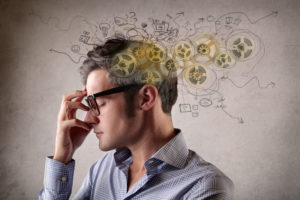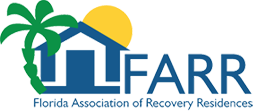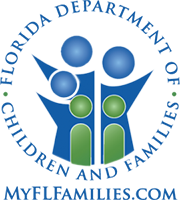The Science of Addiction and How Drugs Affect the Brain
Drug addiction is a treatable medical condition that affects millions of Americans each year. Arguably, the organ in our bodies most affected by addiction is the brain. The brain is responsible for regulating various body functions, including how you behave, think, and respond to situations.
A Brief Overview of How the Brain Works
The brain is a complex vessel made up of billions of cells called neurons that control the brain’s information processing. An intricate system of nerves connects the brain to the rest of the body allowing communication to occur in less than a second.
Neurons release neurotransmitters that latch onto receptors cells resulting in changes to the receiving cell. Furthermore, the brain is divided into four lobes, the frontal, parietal, occipital, and temporal. Each lobe is responsible for different functions:
- Frontal lobe—accountable for thinking, planning, problem-solving, short-term memory, and movement
- Parietal lobe—interprets sensory information like taste or touch
- Occipital lobe—processes images you see and connects that with data stored in your memory
- Temporal lobe—processes information from your senses and is where memories are stored
How Drugs Affect Brain Function
Drug addiction and use taps into our brain’s complex communication system and interferes with the way neurons are sent, received, and how they process information. Drugs can imitate the natural chemical messengers in the brain and overstimulate the brain’s part responsible for perceiving pleasure or rewards.
Substances such as marijuana and heroin have similar chemical structures to neurotransmitters naturally found in our bodies. However, when they attach to neurons, it sends abnormal messages to the brain, which can be problematic for our minds and bodies. Other drugs, such as methamphetamine and cocaine, cause a surge of the neurotransmitter dopamine and prevent the recycling of dopamine, which can contribute to depression and other mental illnesses.
Parts of the Brain Affected by Drug Use
The areas of the brain most impacted by drug use include:
- The Basal Ganglia area of the brain serves as the motivation and pleasure hub and is linked to establishing routines and habits. Often referred to as the “reward circuit,” the basal ganglia are easily overstimulated when drugs are in your system, resulting in the “high” you feel when consuming drugs. Over time and continued use, the basal ganglia has decreased sensitivity, and pleasure is rarely experienced without the drug’s presence.
- The Amygdala is activated in stressful situations and eventually becomes sensitive to drug use. Drug use then becomes necessary to avoid discomfort rather than for the high it used to produce.
- The Prefrontal Cortex allows the brain to think, plan, problem-solve, make decisions, and impulse control. It is the last portion of the brain to mature, increasing the risk of drug addiction in teens and young adults. Damaging the prefrontal cortex and the ability to control impulses leads to impulsive use of the drug.
Neurotransmitters Involved in Drug Addiction
Neurotransmitters consist of chemical substances that transmit signals across the brain. Those impacted by drug use include:
- Dopamine—Drug addiction alters the way dopamine is recycled in the brain and is responsible for mood swings, development of tolerance of the drug, and decreased motivation that are common side effects of addiction.
- Serotonin—Another neurotransmitter responsible for regulating emotions and stabilizing mood.
- Gamma-aminobutyric acid (GABA)—GABA mitigates your stress response and decreases the Central Nervous System’s anxiety and functions.
- Norepinephrine—This neurotransmitter activates the Central Nervous System when your brain is in the “fight or flight” response.
Healing the Effects of Drug Addiction on the Brain
Fortunately, drug addiction is a treatable disease, and much like how a cast helps heal a broken bone, sobriety allows your brain to heal itself. Thankfully, addiction treatment is more advanced than ever, and access to treatment is available to anyone. After detox, and in addition to individual therapy, clients typically receive brain therapies to allow the chemicals in their brain to stabilize. Standard therapies are biofeedback and neurofeedback. Biofeedback involves the use of an EEG to reduce involuntary and stress responses. Neurofeedback (EEQ therapy) can teach the brain to avoid compulsions and reduce stress and anxiety.
At The Source Treatment Center, we have all the tools, resources, and treatment programs available to help people manage the effects of addiction on the brain. Call (800) 204-0418 today to learn more.

 The Source quite frankly saved my life and got me back on track, never giving giving up on me. When you are thinking about and looking through all of the different places to go for treatment this is the one that should stand out from the rest.
The Source quite frankly saved my life and got me back on track, never giving giving up on me. When you are thinking about and looking through all of the different places to go for treatment this is the one that should stand out from the rest.




























